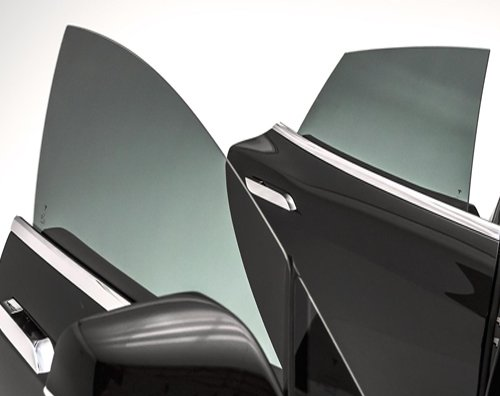Tint Film Explained
Types of Tint Film
Below is a list of the 6 most common types of film use into the car window tinting industry. Each type has different characteristics and varying cost price. All the film that Team Valley Tinting use is the highest grade available, with a lifetime warranty
against any defect.
1. Dyed Window Tinting
These are the cheapest films on the market. These are used by companies looking to save at every opportunity. They are often difficult for the window tint installer to work with and will not last like other window tinting films.
They are made up from multiple layers of dyed film that absorbs some of the solar heat entering your car. This will stop some of the heat making it through the layers. The biggest issue with dyed films is they fade or change colour overtime meaning they have a limited lifespan and will need replacing down the line.
2. Metalised Window Tinting
These are the most common go to film for tint shops as they are still very cheap, however have some of the characteristics of more expensive film. The problem with metalised window film is they also have some disadvantages. Window tinting done with metalised film is similar to dyed film, however they incorporate tiny metallic particles in the film to prevent the film from fading. They also do a much better job of blocking glare, heat and UV.
The problem with metalised film is they can effect radio signals. This can include GPS and phone signal, meaning that once your car is tinted your GPS and phone may not work as well. The biggest issue is when cars have their radio aerial built into the glass. This can massively reduce radio reception.
3. Hybrid Window Tinting
As the name would suggest, hybrid window tinting is a mix of films, using both dye and metal particles. This gives some advantages while cancelling the disadvantages. This combination also makes it neither too dark or too reflective.
4. Carbon Window Tinting
Carbon window tinting provides various advantages over other films, however starts to become much more expensive than previous window tinting methods mentioned. It has a unique matt finish to it that makes it different and in some eyes more attractive that alternatives. This type of window tinting will block out about 40% of the IR responsible for heating the interior of your vehicle. This will also slowdown fading to upholstery and other interior components.
5. Crystalline Window Tinting
This type of window tinting does not have any colour to it. These will not provide you with any privacy or colour to your glass, however will block ultraviolet radiation and solar heat. This is ideal if you want a film applying to your front windows as it will give you the advantages of coloured films without breaking any light transmission laws.
6. Ceramic Window Tinting
Ceramic window tinting is the highest grade of window tinting material. These have all the advantages with none of the disadvantages. These will block the UV and IR radiation without the use of metallic particles meaning they will not effect radio signals. Ceramic window tinting will also never fade.
Some of the main benefits:
- 99% UV protection
- strongest resistance to fading
- increased internal privacy
- increased shatter resistance






